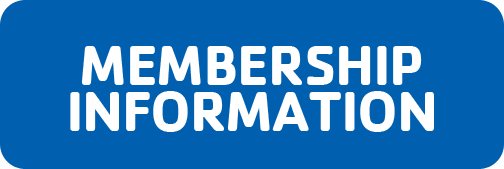New Proposed Rules on Lobbying will Severely Restrict Information Flow
New lobbying restrictions would severely curtail the flow of information to Administration officials and sever communication while leaving financial influence in place. Read the full brief by McKenna, Long & Aldridge here.
****
On September 13, 2011, the United States Office of Government Ethics (OGE) proposed amendments to the regulations governing standards of ethical conduct for federal executive branch employees concerning the acceptance of gifts from registered lobbyists and lobbying organizations. These planned modifications, announced in a notice of proposed rulemaking, seek to extend significant and comprehensive gift prohibitions currently imposed on political appointees by the Obama Administration to all federal executive employees – permanently. Although the proposal has garnered relatively little media attention thus far, the implementation of such regulatory changes could have a profound effect on the way in which lobbyists, lobbying organizations, trade associations, and businesses interact with government employees around the country.
Under the current regulatory framework for lobbyist gifts, non-appointed federal executive branch employees are permitted to receive small individual gifts from lobbyists or lobbying organizations so long as the items accepted are worth no more than $20 and provided the aggregate amount of gifts accepted by an individual employee totals no more than $50 per calendar year. Likewise, under most circumstances, they are permitted to accept free admission to “widely-attended gatherings” (WAGs) sponsored by registered lobbying organizations (including trade associations). By an executive order issued by President Obama in 2009, federal political appointees may not accept gifts of any intrinsic value from lobbyists or accept free attendance to lobbyist-sponsored events unless they receive the offer on the day of the event when they are speaking or presenting information in an official capacity.
If implemented, OGE’s currently proposed modifications would eliminate the aforementioned “de minimis” gift exception for all federal employees, restrict their free attendance at lobbyist-sponsored WAG events, and otherwise hold “career” employees to the same ethical standards as appointed federal officials. No longer would a federal employee of any kind be able to accept a $15 lunch from a registered lobbyist or go to a WAG put on (in whole or in part) by a registered lobbying organization. Nor would career executive branch employees any longer be able to accept social invitations from registered lobbyists or lobbying organizations, or enjoy meals or entertainment provided overseas by such individuals or entities.
Since its release last week, OGE’s preliminary proposal has received a great deal of criticism from lobbyists, trade association representatives, and other businesses employing in-house lobbyists, who have all condemned the measure as an unbalanced attack on their interests by the Obama administration. This is due in large part to the exceptions contained within the OGE proposals for gifts made by 501(c)(3) nonprofit organizations, media companies acting in their news-making capacity, institutions of higher learning, scientific organizations, and other learned societies. Such organizations, which are often as active in lobbying as trade associations and other business entities, have been exempted from complying with the OGE’s new restrictions. The objection is that lobbying organizations (particularly trade associations and business entities employing in-house lobbyists) are being subjected to the rules and unfairly singled out as sources of improper influence.
In light of the proposal’s current exemption structure, it is easy to understand this growing chorus of criticism – particularly with regard to barring all executive branch employees from attending association and business-organization WAGs unless they are speaking or paying for admission. It is unwarranted and arbitrary for the OGE to characterize WAG admission as an improper gift when it comes from a trade association, while at the same time classifying it as a proper gift when it comes from one of the specified, permitted sources. This is especially true given the fact that trade associations make the same positive contributions as the OGE-excepted groups in the areas of education, standard setting, and professional development.
In addition, it is a poor means of promoting informed administrative governance for the OGE to ban federal employees from accepting free attendance to a wide range of policy programs, seminars, and other events put on by non-excepted entities simply because they happen to be business-oriented organizations. Now, when it is more important than ever for federal executive branch employees to learn about what is going on in the areas they are regulating, would not seem to be the time to preclude them from attending non-lobbying events held by associations and other organizations.
Regardless of the present shortcomings of the OGE proposal, however, lobbying organizations, trade associations, businesses employing internal lobbyists, non-profit entities, media groups, institutions of higher learning, and other professional associations should all take notice of the potential changes and how they may come to affect day-to-day interactions with federal executive branch employees. The potential for increased exposure to federal ethics violations is quite real in this instance, and as such, McKenna Long & Aldridge stands ready to assist our clients in monitoring and participating in the administrative comment process (which remains open until November 14, 2011), as well as in preparing them to comply with whatever final regulations emerge from OGE in the coming months.
From McKenna, Long & Aldridge — Stefan C. Passantino, Jeffrey P. Altman, Randall Nuckells & Benjamin Keane


